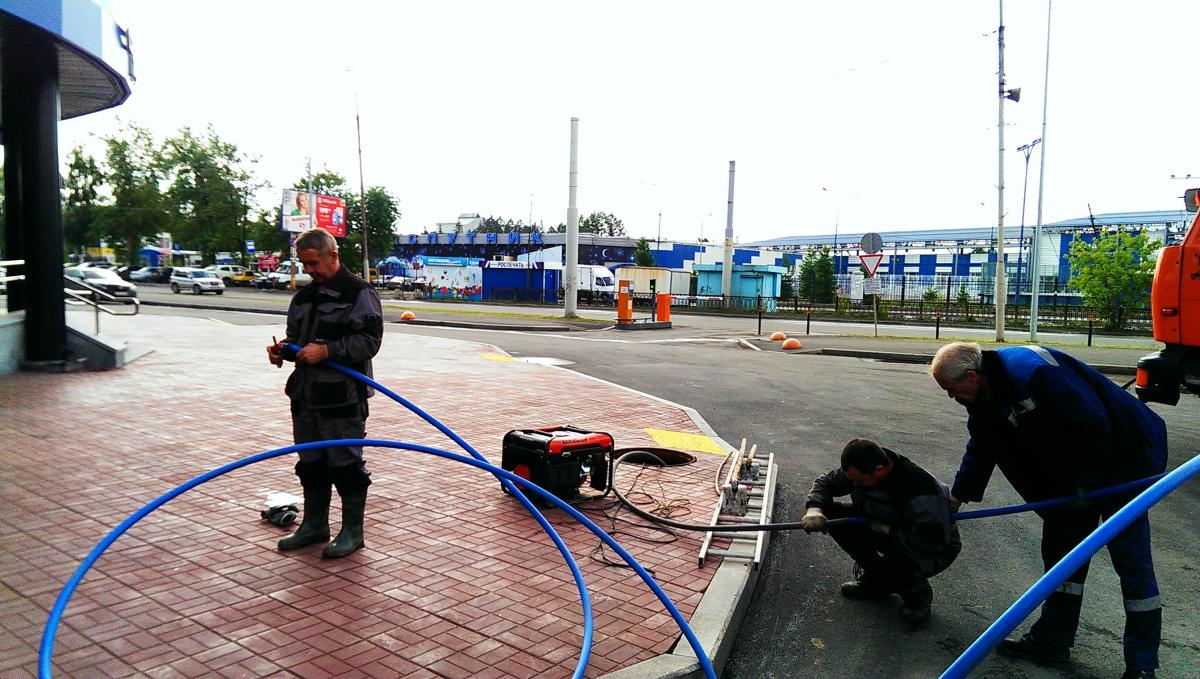FSB begins collecting data on foreign employees of telecom operators

Since the beginning of 2018, the Federal Security Service and Roskomnadzor have significantly strengthened control over foreign citizens, as well as organizations involved in the construction and operation of telecommunications networks in Russia. For example, the Vimpelcom company operating under the Beeline brand received several dozen prescriptions from Roskomnadzor about the need to eliminate violations in various regions.
As it turned out, the violations consist in the company’s failure to provide the territorial departments of the FSB with information about foreign citizens and contractor companies involved in the creation and operation of the operator’s networks, RBC reports .
In fairness it should be noted that the corresponding requirement did not appear suddenly, it is relevant since July 2016. Then the Minister of Communications Nikolay Nikiforov signed the order
"On approval of requirements for the operation of communication networks and management of communication networks in terms of the use of third-party services by telecom operators." The document establishes the procedure for providing operators with information about the persons and organizations mentioned above. Moreover, information should be sent to the territorial bodies of the FSB on a quarterly basis. In addition to foreigners, it is necessary to present data on stateless persons. As for foreign citizens, the information provided must contain such items as place of residence, passport data, “list of identifiers”. In the case of a foreign organization, it is necessary to provide registration and branch addresses, TIN and a list of identifiers.
')
Representatives of Roskomnadzor have already confirmed that the agency began to verify the fulfillment of the order by operators immediately after it entered into force. “In the course of a scheduled inspection conducted by VimpelCom in 2018, violations of the order were found and instructions were issued. A number of prescriptions have been fulfilled, the established deadline for others to date has not expired, ”the press service of Roskomnadzor said. If the order is not fulfilled for a private person or organization, administrative responsibility will be incurred under Article 19.5 of the Code on Administrative Offenses. There is a penalty, the amount of which for legal entities is about 500 thousand rubles. At the same time, scheduled checks of other Big Four operators were not conducted during the specified period of time.
One of the regional operators said that the requirement to send to the local FSBB office data on foreigners who operate the network was received from Roskomnadzor only this year. Previously, there were no such requests from the department: “Last year there were no such requests from them. The report asked for data on foreign employees in the state, if any, and foreign contractors that are related to the operation of the network, in particular foreign companies with state participation. ”
The practice of transferring projects for the construction and operation of own networks to foreign contractors is common among telecommunication companies in Russia. For example, in March last year, VimpelCom signed an agreement with Huawei and Nokia on outsourcing their services to their networks. Nokia, therefore, deals with equipment management, facility maintenance, planning and optimization. She also works with partner networks in the Central, Southern and North Caucasus Federal Districts. Huawei performs the same functions in the North-West, Volga, Ural, Siberian and Far Eastern districts.
For two years, from 2014 to 2016, Rostelecom, together with Huawei, worked on the creation of an underwater communication line 1800 km long in the direction of Kamchatka-Sakhalin-Magadan. It was supposed to allow the provision of broadband Internet and digital television services to the population of the Kamchatka Territory and the Magadan Region. The cost of the contract with the Chinese was then 3 billion rubles.
“Communication networks in Russia in the last few years are considered as an element of national sovereignty and are considered to be an object of critical infrastructure. I think that is why the state security bodies want to more closely monitor those who build and operate them. We still look at foreign citizens as potential spies. I believe that now there is no operational work with the information about foreigners that comes from the operators, it simply adds to the folder. But in the event of any leakage through communication channels, it can easily be lifted, ”says Alexei Semenyaka, director of external relations at RIPE NC C, who deals with Internet addressing and routing.
Source: https://habr.com/ru/post/358028/
All Articles